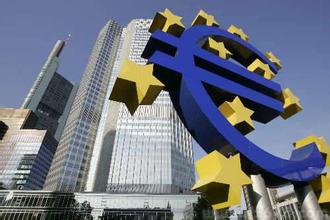Not long ago, before the euro existed, French politicians would have felt uncomfortable presenting a budget in deficit. The devaluation of the franc against the Deutschmark was unpalatable at home and would have provoked a costly reaction from the markets. The single currency appears to have worked since as an anaesthetic. On the eve of the European Commission’s scrutiny of its 2015 budget – and after overshooting its deficit-reduction targets for a third time – France displays a disconcerting air of nonchalance.
不久前,也就是在欧元诞生之前,法国政治人士若递交一份带赤字的预算,会觉得很不舒服。那时,法国法郎对德国马克贬值会在法国国内引起不满,还会刺激市场作出带来严重后果的反应。自欧元诞生以来,该单一货币似乎起到了一种麻醉剂的作用。在欧盟委员会(European Commission)审查其2015年预算前夕,面对第三次未实现减赤目标的局面,法国却表现得满不在乎。这种情绪有点令人不安。

So, three years after the eurozone reinforced its economic governance and brought in the fiscal compact – the treaty that strengthens the terms of the EU’s stability and growth pact – where are we, and where do we go?
那么,在欧元区加强经济治理并引入财政契约——即强化欧盟《稳定与增长公约》(Stability and Growth Pact)条款的条约——三年后的今天,我们身处何处、又将去向何方?
The fear of a euro break-up has gone, and the days of make-or-break summits are over. But now the spectre of deflation haunts a highly unstable geopolitical climate. Some member states at the periphery underwent reform programmes that have broadly succeeded. Today it is the largest economies – France, Germany and Italy – that hold the answer to the European recovery conundrum.
欧元区解体恐慌已经消散,召开生死攸关峰会的日子也已成为过去。然而,通缩阴云正笼罩在欧元区上空,该地区的地缘政治环境也处于极不稳定的状态。一些外围成员国实施了改革计划,这些改革大体上取得了成功。如今,要破解欧洲复苏难题,得向法、德、意这三个欧元区最大的经济体寻找答案。
If persistent high fiscal deficit and increasing public debt resulted in rapid economic growth, then France and Italy would be European champions; Japan would be the world’s leading economic power; and Finland would be running the show in the Nordic area. What these countries have in common is a lack of appetite for structural reforms.
如果居高不下的财政赤字和不断膨胀的公共债务能带来快速的经济增长,那么法国和意大利将是欧洲的领头羊,日本将是世界头号经济强国,芬兰将是北欧的霸主。上述诸国的共同之处在于,都对结构性改革兴趣索然。
When Germany broke the terms of the stability and growth pact in 2003-04, it did so to implement a bold reform agenda that is unanimously applauded today. Should structural reforms be implemented in France and Italy, the European Central Bank would be reassured that its monetary stimulus was being channelled effectively through to the real economy to boost lending to enterprises and households.
2003-04年,德国违背了《稳定与增长公约》的条款,其目的在于落实一个大胆的改革议程,该议程如今获得一致好评。如果法国和意大利实施结构性改革,将会打消欧洲央行(ECB)的疑虑,让其相信其货币刺激将被有效传导至实体经济、来扩大对企业和家庭的放贷。
But genuine reforms in France are still pending. The reshuffled government does not have the support of its Socialist majority. The republic’s rigid institutional system prevents Prime Minister Manuel Valls and Emmanuel Macron, economy minister, from co-operating with like-minded elements in the opposition, making it impossible to abandon the 35-hour working week or suffocating taxes on producers and companies. Ultimately, without reforms, the social system cannot continue to be financed by salaries; the burden must be shifted to consumption, in the form of a “social value added tax”, for instance.
然而,法国仍不知何时才能实施真正的改革。改组后的政府未能获得多数党社会党(Socialist)的支持。法国僵化的建制体系,使得总理曼努埃尔•瓦尔斯(Manuel Valls)和经济部长埃马纽埃尔•马克龙(Emmanuel Macron)无法与反对党中与他们政见相似的成员合作,因此要废止35小时工作制和封杀针对生产者和企业的某些税收比登天还难。归根结底,不实施改革,社保体系所需的资金就无法继续由工资来提供;担子只能由消费来承担,比如以“社会增值税”(Social VAT)的方式。
Rallies in Rome this weekend were a reminder that Matteo Renzi, the prime minister, is still struggling with factions in his Partito Democratico, despite its victory in the European elections.
尽管意大利总理马泰奥•伦齐(Matteo Renzi)所在的民主党(Partito Democratico)在欧洲议会(European Parliament)选举中取得胜利,但不久前罗马爆发的群众集会表明,伦齐仍在与民主党内各派别作斗争。
Should the Rome-Paris axis implement genuine reforms, Germany would be inclined to boost its own domestic demand, particularly by increasing public and private investment. In return, a clear signal from Berlin that it is ready to boost internal demand would be welcomed in Paris and Rome.
如果意法轴心实施货真价实的改革,那么德国可能会愿意提振国内的需求,特别是以扩大公共和私人投资的方式。反过来,柏林发出的准备提振内需的明确信号,也会受到巴黎和罗马的欢迎。
At the same time, the ECB should go all the way down the road of monetary policy. Quantitative easing would help fell the spectre of deflation and assure leaders in France and Italy that economic reform is worth the political cost because it would keep up stronger economic activity and domestic demand.
与此同时,欧洲央行应推行尽可能积极的货币政策。量化宽松有助于驱散通缩阴云,有助于让法国和意大利领导人相信推行经济改革不需要付出那么大的政治代价,因为量化宽松会使经济活动和内需维持在较强劲的水平。
The reinforced economic governance of the eurozone and the decisive actions of the ECB have helped to stabilise the economy. Now member states must do their bit. European economic governance is not in the first instance about sanctions but about a partnership for reform orchestrated by the member states themselves and helped by the commission. Any successful strategy to boost growth requires the member states concerned to take ownership of reforms. The Commission’s chief role is to help identify the most significant reforms to underpin growth. The euro group, comprising eurozone finance ministers, must push for this too.
欧元区加强经济治理和欧洲央行采取果断行动,帮助稳定了经济。现在,各成员国必须尽到自己的责任。欧洲经济治理的本意不是制裁,而是合作实施由各成员国自身精心策划、由欧盟委员会帮助推动的改革。任何成功的促增长战略,都需要相关成员国投身改革。欧盟委员会的主要任务,是帮助确定促增长的最重要改革。由欧元区各国财长组成的欧元集团(Euro Group),也必须为此努力。
Only peer pressure, opprobrium and fear of losing influence will shake leaders up. Still, Rome and Paris should not wait until they have lost all their political capital before taking decisive action.
只有同侪压力、公众的责难以及对失去影响力的恐惧,才能让各国领导人的内心产生震撼。话虽如此,意大利和法国还是应该赶在失去全部政治资本之前采取果断行动。
The year 2017 will be crucial. The fiscal compact will have to be integrated into EU treaties; the EU budgetary framework for 2014-20 will be revised; and the UK will hold a referendum on a renegotiated membership which, given public opinion, will be hard to escape, even if the opposition Labour party wins the 2015 general election. At the same time, Germany and France will go to the polls. All the stars are aligned for big changes in Europe.
2017年将是关键一年。届时,财政契约将必须整合到欧盟条约中;2014-20年欧盟预算框架将被修订;英国将就是否保留其通过重新谈判得到的欧盟成员国资格举行公投,考虑到英国现在的民意,这次公投将是难以避免的,哪怕是反对党工党(Labour Party)赢得2015年的大选。同时,德国和法国将举行大选。欧盟所有成员国都将迎来巨变。
The writers, Liberal MEPs, are respectively former Commission vice-president for economic and monetary affairs; and chair of the European Parliament budgets committee and French finance minister, 1995-97
奥利•雷恩(Olli Rehn)和让•阿尔蒂(Jean Arthuis)现为欧洲议会自由派议员;雷恩曾任欧盟委员会经济与货币事务专员;阿尔蒂曾在1995年至1997年任法国财长,现任欧洲议会预算委员会主席













